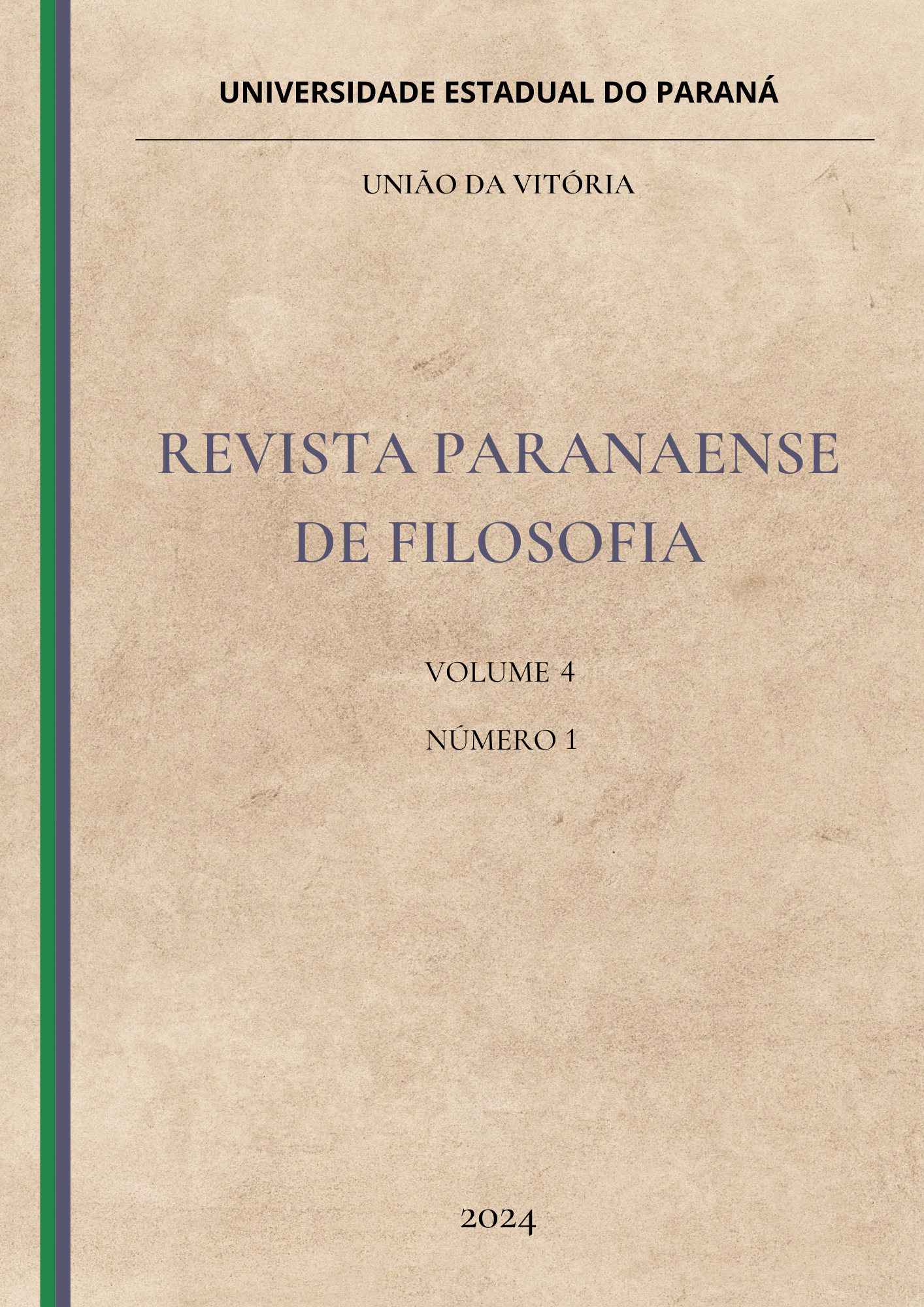Philosophical thinking: On the trail of things worth knowing
No rastro das coisas dignas de serem sabidas
DOI:
https://doi.org/10.33871/27639657.2024.4.1.8838Abstract
Aiming to map the traces of Western though as we know it today and the transformations in philosophical thought that led to the new Hellenistic sensibility of the time, this work is divided into two parts. The first talks briefly about the importance of the pre-Socratics, Sophistics, Socrates and Plato for the history of Western philosophical thought. The second part briefly reflects on the transition process from the classical era to the Hellenistic era and the contributions of Epicurus as the founder of one of the great Hellenistic schools of the time. Finally, it should be noted that as the heirs of these thoughts, they are able to understand them, as suggested by Vernant (1999). We highlight the importance of, based on understanding these thoughts, considering the potential for the possibility of the emergence of new ways of thinking, being and existing in the present and in/for the future.
Downloads
References
ALMEIDA, J. E. L. O Teatro, a Pólis: Dioniso e seu Espaço Norteador da Identidade Políade. São Paulo, Labeca – MAE/USP, 2010. p. 1-35. Disponível em: http://labeca.mae.usp.br/media/pdf/almeida_o_teatro_a_polis.pdf. Acesso em: 03 jun 2023.
CASTRO, J. C.; SIQUEIRA-BATISTA, R. A virtude pode ser ensinada? Uma aproximação a partir dos diálogos platônicos de Mênon, Protágoras e Eutidemo. Hypnos, São Paulo, v. 39, 2º sem., 2017, p. 288-310.
CORNFORD, F.M. Antes e Depois de Sócrates. Trad. Valter Lellis Siqueira. São Paulo: Martins Fontes, 2005.
ENGLER, M. R. A sentença de Protágoras sobre os deuses e a Unidade de sua doutrina. Veritas, Porto Alegre, v. 64, n. 2, p. 1-32. 2019. Disponível em: https://revistaseletronicas.pucrs.br/ojs/index.php/veritas/article/view/32302. Acesso em: 15 nov. 2023.
EPICURO. Carta sobre a felicidade (a Meneceu). Trad. Álvaro Lorencini e Enzo Del Carratore. Editora Unesp: São Paulo, 2002.
LORENCINI, A.; CARRATORE, E. Del. Introdução. In: EPICURO. Carta sobre a felicidade (a Meneceu). Trad. Álvaro Lorencini e Enzo Del Carratore. Editora Unesp: São Paulo, 2002. p. 5-17.
NIETZSCHE, F. Os filósofos trágicos. In: Os pré-socráticos: fragmentos, doxografia e comentários. Trad. Rubens Rodrigues Torres Filho. 3 ed. São Paulo: Abril Cultural, 1985. pp. 10-12.
NIETZSCHE, F. A Filosofia na era trágica dos gregos. Trad. Fernando R. de Barros. São Paulo: Hedra, 2008.
REALE, G.; ANTISERI, D. História da Filosofia: Filosofia pagã antiga. Paulus: São Paulo, 2003.
REALE, G. Filosofias helenísticas e epicurismo. Trad.Marcelo Perine. São Paulo: Edições Loyola, 2017.
SCHOPKE, R. Alegria: A verdadeira resistência. Rio de Janeiro: Confraria do vento, 2020.
SÓCRATES. Apologia de Sócrates. In: PLATÃO. Apologia de Sócrates & Críton. Trad. Alexandre Romero. São Paulo: Hunter Books Editora, 2014.
VERNANT, J. Os gregos inventaram tudo: Entrevista com o historiador Jean-Pierre Vernant. Trad. José Marcos Macedo. Folha de São Paulo, outubro, 1999.
Downloads
Published
How to Cite
Issue
Section
License
Copyright (c) 2024 Revista Paranaense de Filosofia

This work is licensed under a Creative Commons Attribution 4.0 International License.
Artigo publicado em acesso aberto sob a licença Creative Commons Attribuition 4.0 International Licence.
Os autores cedem o direito exclusivo de primeira publicação à Revista, sendo o trabalho licenciado simultaneamente sob a licença Creative Commons Attribution 4.0 International (CC BY). Esta licença permite que terceiros remixem, adaptem e criem a partir do trabalho publicado, atribuindo o devido crédito de autoria e publicação inicial neste periódico. Os autores têm autorização para assumir contratos adicionais separadamente, para distribuição não exclusiva da versão do trabalho publicada neste periódico (por exemplo: publicar em repositório institucional, em site pessoal, publicar uma tradução ou como capítulo de livro), com reconhecimento de autoria e publicação inicial neste periódico.



